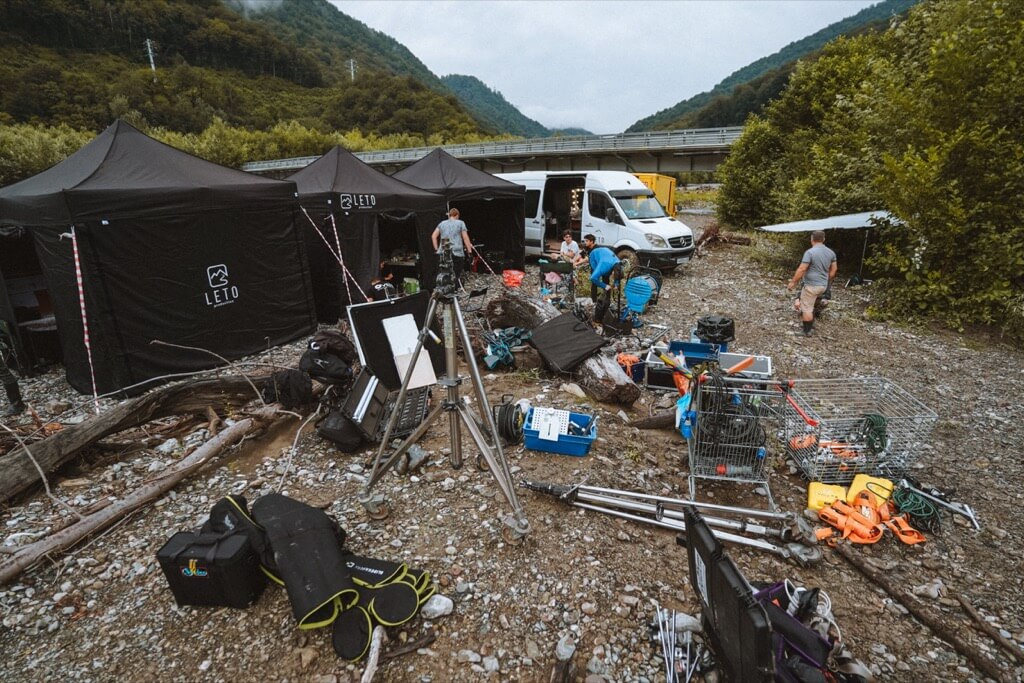- A Global Filming Guide: Do’s, Don’ts, and Must-Knows - February 14, 2024
- Low-Income Americans’ Surprising Spending Habit - December 4, 2023
- France’s Startling Act of Aggression - December 1, 2023
To ensure a seamless and productive experience while filming abroad, it’s crucial to prepare comprehensively, understand the cultural nuances, and avoid common pitfalls. Here’s a detailed guide to navigating the complexities of international filmmaking.
Before you even pack your bags, a meticulous preparation phase is essential. Ensuring that all your paperwork is in order is the first step. This includes securing filming permits with documentation in both your language and that of your destination country, obtaining comprehensive insurance, and having a clear list of emergency contacts. Furthermore, considering the legal aspects, such as music rights and the use of carnet for equipment transportation, can save you from potential headaches down the line.
The Role of a Fixer
A fixer can be your lifeline in a foreign country. These local experts not only help with language barriers and cultural differences but also facilitate access to locations, talents, and resources that would otherwise be difficult to navigate. Their insider knowledge and connections can significantly enhance the efficiency and authenticity of your project.
Chartering Flights
While charter flights might seem like a luxury, they offer practical benefits for film crews traveling with sensitive equipment and tight schedules. The ability to bypass the usual hassles of commercial flying can be worth the investment, providing a more controlled and exclusive environment for your team.
Cultural Etiquette and Conduct
Understanding and respecting the local customs and etiquette of your filming location is paramount. Demonstrating respect for the environment, local traditions, and laws not only ensures a harmonious working relationship with local communities but also sets a positive example for your crew. Additionally, making an effort to learn the language, even just a few key phrases, can go a long way in building rapport and facilitating smoother operations.
Common Oversights
One of the most significant errors filmmakers can make when planning to film abroad is underestimating the importance of suitable accommodations and scheduling flexibility. Ensuring that your crew has comfortable lodgings and enough time both for filming and relaxation can dramatically impact the morale and productivity of the team. Overworking your crew or failing to provide opportunities to explore the host country can lead to burnout and diminish the overall experience.
Moreover, neglecting to prepare a comprehensive checklist of essential items and equipment can lead to unnecessary complications. From personal comfort items like a portable steamer to professional necessities such as backup batteries and memory cards, having a well-thought-out packing list is crucial.
Here are ten lesser-known facts or misconceptions about what to do, how to act, and common mistakes when filming abroad:
- Local Regulations Can Vary Widely Within a Country
- It’s a common misconception that filming regulations are uniform across a country. In reality, local laws regarding filming can vary significantly from one region to another, sometimes requiring separate permits for different locations within the same country.
- Cultural Sensitivity Goes Beyond Mere Courtesy:
- While most filmmakers understand the importance of being respectful, cultural sensitivity also involves understanding local customs deeply enough to avoid unintentional offenses in your film’s content. This includes gestures, language, and the portrayal of cultural practices.
- Insurance Requirements Can Be Uniquely Specific:
- Filming abroad often requires specialized insurance that goes beyond basic equipment and liability coverage. In some cases, countries demand specific clauses related to filming activities, which if overlooked, can lead to significant legal and financial repercussions.
- The Importance of Non-Verbal Communication:
- Non-verbal cues play a crucial role in communication, especially in cultures where direct confrontation is avoided. Understanding and interpreting these cues correctly can be crucial for smooth interactions with local crews and communities.
- Weather and Natural Light Variances:
- A common mistake is underestimating the impact of local weather patterns and natural light variances on filming schedules. Certain locations experience drastic changes in daylight hours and weather conditions, which can affect shooting plans.
- Data Security and Privacy Laws:
- Misconceptions abound regarding data security and privacy laws when filming abroad. Some countries have stringent regulations about capturing and storing digital footage, requiring filmmakers to adhere to specific data protection protocols.
- The Complexity of Bringing Equipment Across Borders:
- While carnet systems facilitate the temporary import of filming equipment, the process is often more complex than anticipated. Detailed inventories and adherence to strict customs procedures are essential to avoid delays and penalties.
- Local Talent and Crew Hiring Practices:
- Filmmakers might assume hiring local talent and crew is straightforward. However, local labor laws, union rules, and cultural norms around work hours and compensation can complicate these processes.
- Impact on Local Communities and Ecosystems:
- Filming projects can inadvertently disrupt local communities and ecosystems, a fact often overlooked in the planning stages. It’s important to assess the environmental and social impact of your project to ensure sustainable and responsible filming practices.
- The Ethical Use of Locations and Stories:
- There’s a growing awareness around the ethical considerations of using real-life locations and stories in filmmaking. Filmmakers must navigate the fine line between artistic expression and the potential for cultural appropriation or misrepresentation, ensuring that local communities are portrayed with accuracy and respect.
While the primary goal of your trip is to produce a film, allowing yourself and your crew to enjoy the experience is equally important. Planning for downtime and cultural experiences can enrich your team’s experience and foster a sense of camaraderie and inspiration. Remember, the essence of filmmaking abroad lies not only in capturing compelling stories on camera but also in experiencing the profound impact of cultural exchange and exploration.
When filming in foreign territories, the responsibility of filmmakers extends beyond capturing compelling visuals. It encompasses a commitment to ethical practices, from ensuring data security and privacy compliance to minimizing environmental impact. The challenge of transporting equipment and managing logistics underscores the importance of detailed planning and familiarity with customs regulations. Engaging with local talent and crews not only enriches the film but also supports the local industry, provided it is done in accordance with local norms and regulations. By prioritizing ethical considerations and community impact, filmmakers can navigate the complexities of international productions, resulting in a project that is both visually stunning and culturally respectful.

